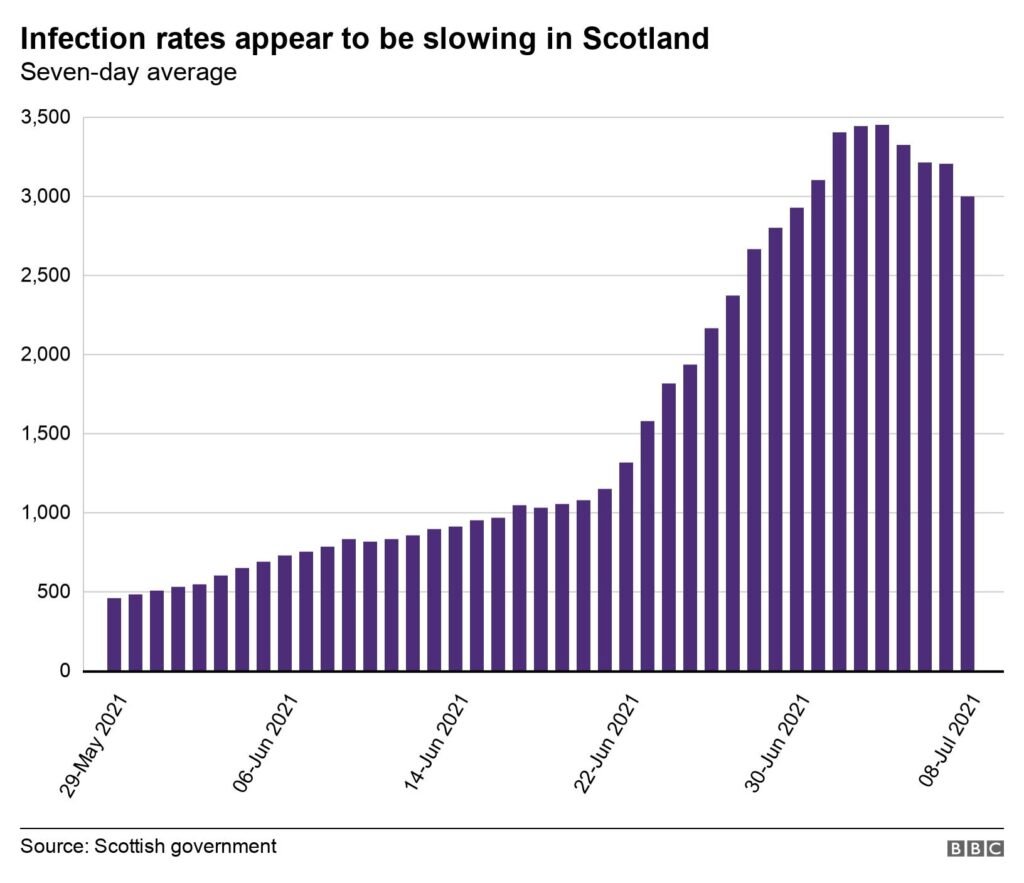
Scotlands Restrictions
Are Scotlands restrictions easing to early, and what will be the cost?

According to the Scottish government, people with impaired immunity would be placed at risk if Covid limits are eased whilst case rates continue to increase, and so with Scotland looking to easy restrictions, we look at what the cost to the most vulnerable might be, and we ask ourselves, are scotlands restrictions easing to early.
A patient advocacy organisation claims that any proposal to “live with Covid” would have “major implications” in an open letter to Scottish ministers.
Vaccines may not provide as much protection to those with compromised or weaker immune systems.
The Scottish government said that it will assist high-risk populations, but are scotlands restrictions easing to early?
The letter’s 83 signatories, who include handicapped persons, people with pre-existing health problems, unpaid caregivers, and leaders from equality organisations, want “clarity” from the Scottish government on its current plan to combat the Covid-19 epidemic.
According to the statement, UK Prime Minister Boris Johnson’s recent statement that the country must “live with Covid” has left them “shaken,” because it places thousands of people at danger of being extremely ill or dying from the virus. It also signifies that scotlands restrictions may be easing sooner then many would hope for.
“It has demonstrated who’s lives matter and who’s not,” the letter said.
“While these choices affect England, they will have immediate and indirect implications for Scotland, especially over the holiday season.”
The contributors of the letter went on to voice their concern over Scotland’s “apparent change in narrative and the direction of public health choices.”
“All of this has far-reaching consequences for our culture and economy.” “The unfairness and obscurity that handicapped persons, those with pre-existing illnesses, and unpaid carers (the majority of which are women) already suffered before Covid-19 has been worsened,” the letter continues.
“Any planned relaxation of limitations must prioritise the lives of those who are most vulnerable.
“Any decision to ‘live with Covid’ indicates that the danger to our lives and the lives of our family is a risk worth taking.” “We are not in agreement.”
What happened to Scotland’s goal of becoming rid of Covid?
People who use immunosuppressive medications are more likely to get infections.
Adults with weaker immune systems or who are immunosuppressed are also less able to naturally fight infections.
People who are getting chemotherapy or severe radiation for cancer, as well as those who have major immunological diseases, are among them.
According to recent research, they don’t get as much protection from Covid vaccinations as other people.
They are recommended to get one of the Covid-19 vaccinations, but they are also advised to stay away from the virus.
The letter asks the Scottish government if it is still pursuing a “zero Covid policy,” and how it would deal with disparities if a plan to “live with Covid” was in place.

For the very first time since widespread testing began last week, the number of Covid cases in Scotland had reached 4,000.
The number of new instances, on the other hand, appears to be slowing.
“We are conscious of this as we explore the next steps,” a Scottish government spokeswoman said. “We recognise that certain people at highest risk may experience heightened anxiety when restrictions loosen.”
“The chief medical officer will be writing to everyone on the highest risk list with information on what advancing to level zero and beyond will entail for them soon.”
“A substantial number of persons who are at greatest risk from Covid-19 have not yet received both doses of the vaccination.”
“We would encourage everyone who is able to get vaccinated as soon as possible,” she says, “but we recognise that certain people’s health conditions or age make this impossible.”




